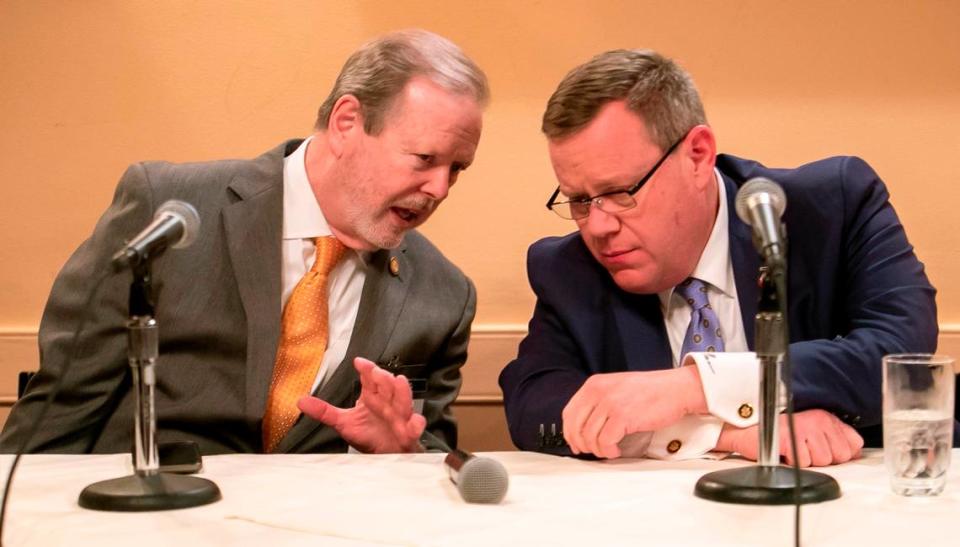NC budget talks stall. Senate leader blames too much ‘pork’ spending sought by House.
Republicans at the North Carolina General Assembly are at an impasse in this year’s budget talks.
The reason?
According to Senate leader Phil Berger: “Pork.”
Berger told reporters after Thursday’s Senate session that the House wants to spend $1 billion from the state’s reserves on earmarks. He does not want to do that.
The state has about a $1 billion revenue surplus this year, which is less than what was projected in the spring, but still significant. Berger said the House wants to spend both the surplus and money from reserves.
Republicans control both the House and Senate, so they also control the state’s spending plan. In general, the Senate favors more conservative spending than the House. That’s the case this legislative session, too.
‘We are not making progress’
Berger told The News & Observer on Tuesday that he wasn’t ready to “sound the alarm” yet on the budget possibly being derailed. That was before he and Moore met about the budget.
On Thursday, Berger said, “We are not making progress.”
“The good news is we have a budget. We adopted a two-year budget last year, and we have a budget,” Berger said. “The real sticking point at this point is that — notwithstanding the fact that we have seen revenue projections that are about a billion dollars more than what we anticipated — spending that billion dollars is not enough for the House.
“They want to spend a billion dollars out of reserves in addition to that, and the Senate will not go along with that.”
Asked what the House wants to spend that extra money on, Berger responded: “Pork,” which means earmarks for various projects in lawmakers’ districts.

Berger cited economic uncertainly and potential health care costs and said that the need for reserves is greater than the need for individual projects, even though they may be worthwhile projects. The state keeps billions of dollars in various savings funds.
“The wisdom of spending that money is lost on us,” he said.
The House’s budget perspective
On Wednesday, Moore told reporters after his meeting with Berger that the budget was “not off the rails.”
“It could be better, but it could certainly be a lot worse,” Moore said. “I was hoping that we would have made even more progress.”
He said he wished negotiations were “moving a little more quickly.” Moore described the $1 billion surplus instead of a shortfall as “the good news.”
Moore framed the delay in negotiations as needing to factor in the updated revenue surplus being about $400 million less than anticipated. He called the situation “just part of the normal procedure.”
Indeed, what has become normal procedure at the General Assembly is to extend the budget process into the new fiscal year, which starts July 1. However, the state passes a two-year spending plan every two years, and the two-year budget bill passed in 2023 is a spending plan for the upcoming 2024-25 fiscal year, too.
The raises for teachers and state employees in the 2023 budget are spread out over two years. Additional raises this year beyond that may not happen, though House leaders have said previously they would consider additional raises, or even bonuses.
Additional raises and bonuses are in a budget proposal from Democratic Gov. Roy Cooper.

